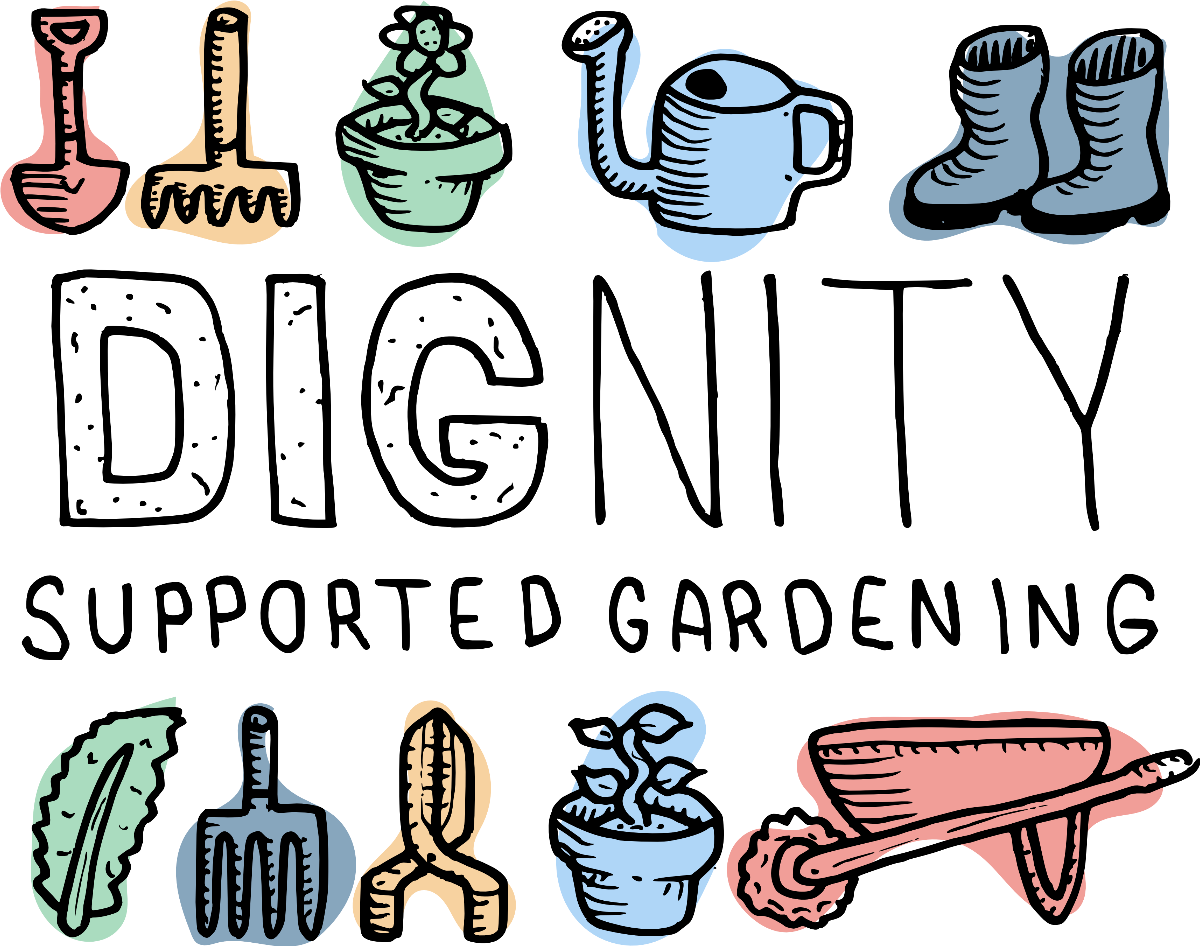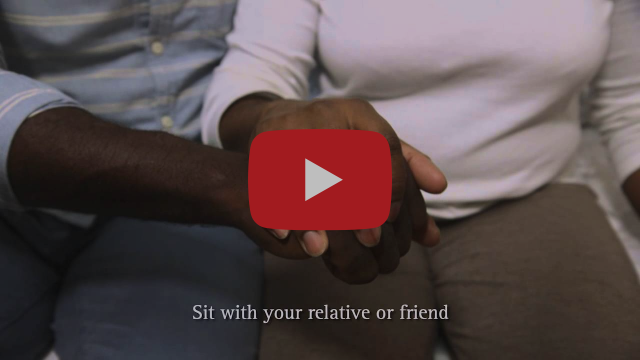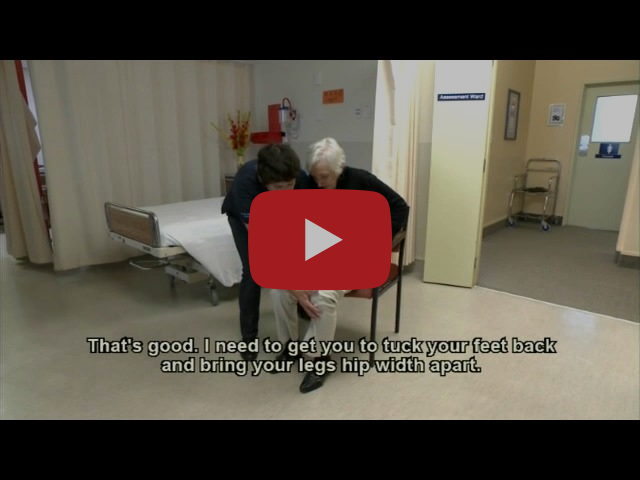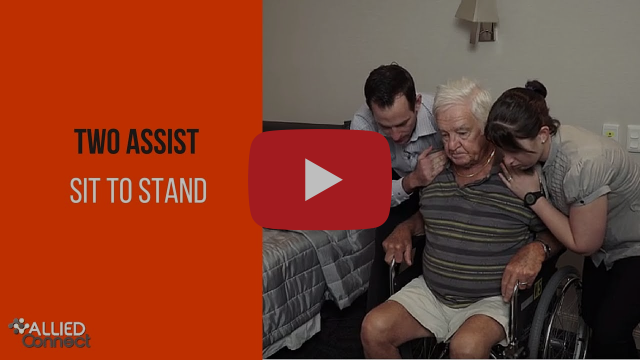DIGnity Volunteer Training Resource
This resource is for new and existing DIGnity volunteer. Thank you so much for being part of the team. Without our volunteers DIGnity would not be what it is today.
Your specific tasks on the day will be guided by your interests and skills and will be organised in conjunction with the Community Garden Coordinator. This little manual provides some background information about the philosophy behind DIGnity and some knowledge and information which volunteers in the past have expressed would be helpful.
What is DIGnity all about?
This video beautifully sums up what DIGnity is about and what the different roles of the DIGnity team are.
There are lots more videos that have been made about DIGnity which you can access on our website.
Therapeutic Horticulture and the DIGnity philosophy.
Therapeutic Horticulture is the theory on which the DIGnity program is based on.
"Therapeutic Horticulture (TH) is a process in which plants and gardening activities are used to improve the body, mind and spirit of those people for all ages, backgrounds and abilities."
Therapeutic Horticulture Australia
If you want more information on this please feel free to look at this UK website.
The key message in your role as a volunteer is to "do with" rather than to "do for" to enable participants to engage.
Participants who have dementia.
Many of our participants come from residential care homes and other aged care and dementia care services. Therefore, there is a significant proportion of attendees who may have dementia. Completing the Dementia Friends Training provided by Dementia Australia will help you in your volunteer role and may also be useful for every day life. This training is fully online, easy to complete and only takes about 15 to 30 minutes. At the end you receive a certificate of completion and the DIGnity project officer can supply you with a Dementia Friends badge.
Helping people to move around the garden.
Our volunteers often feel unsure about how to help people move around in the garden. Generally people will know their own limits and/or have a professional support person with them. The following videos are not based on outdoor setting, but provide some guidance for supporting a perosn with limited mobility in common scenarios, eg. helping someone in and out of a chair.
Some key messages:
If someone is dependent on a mobility aid, ie. walking stick or 4-wheeled walker ensure that it is in reach at all times (within reason).
People who use a mobility aid to sit should be encouraged/directed to sit in a chair which is easy to stand back up out of (eg. with armrests and not too low)
Encourage people to get active, but try not to be too "pushy" it is not the role of volunteers to challenge or test limits of mobility.
The Occupational Therapist can help you if you feel unsure about how to assist someone or if you feel they are unsafe.
Do not lift people's weight, look after yourself!
Finally, we'd like to thank you for your volunteering for DIGnity and for taking the time to work through this manual. If you have any questions about the information in this manual please contact:
DIGnity project officer Hannah (dignity.garden@gmail.com)
For practical matters about your role at DIGnity sessions please approach the Garden Coordinators:
Nubeena - Jack (projects@dunalleytasman.org)
Okines - Jess (project@okinescommunityhouse.com.au )
On the day you can also approach the DIGnity team; Artist (Bec/Joi), Mental Heath Counsellors (Biddy/ Margaret) or Occupational Therapists (Annabell/Leigh).







